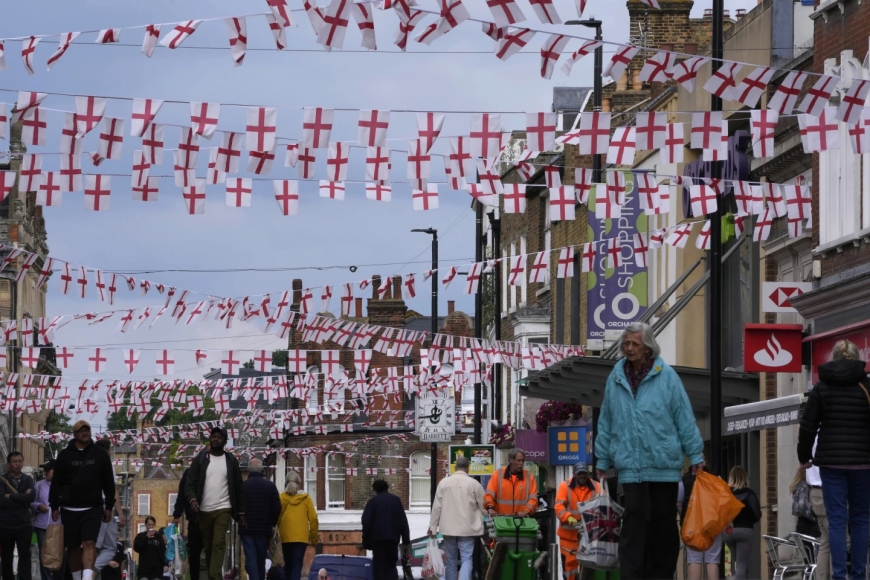A Historic Year for American and British Voters: Distrust in Leaders Looms Large

On this significant date, British citizens will cast their votes in a parliamentary election that is anticipated to usher in a Labour government, ending 14 years of Conservative dominance. Simultaneously, Americans will celebrate Independence Day with traditional festivities, even as they brace for the contentious presidential rematch between Democratic President Joe Biden and Republican Donald Trump on November 5th.
July 4th symbolizes a dual heritage for these two democracies. For Americans, it marks their independence from British rule, achieved in 1776, while for the British, it underscores their historical connection to the Magna Carta of 1215. This seminal document laid the foundation for modern democracy by asserting that even kings and leaders are not above the law. Over centuries, these nations have forged a deep alliance, sharing democratic values and principles.
Current Political Climate: A Stress Test for Democracy
As the UK and the US approach their respective pivotal dates in 2024, the prevailing sentiment among voters is one of disenchantment and skepticism towards their leaders.
In the UK, the lead-up to the election reveals widespread dissatisfaction. According to a survey by the National Centre for Social Research, 45% of British citizens now claim they "almost never" trust their government to prioritize national interests, a significant increase from 34% in 2019. This surge in distrust is fueled by recent crises, including the COVID-19 pandemic, the Russia-Ukraine conflict, and a severe cost-of-living crisis. The turmoil led to the ousting of two Conservative prime ministers, with Boris Johnson resigning amid scandal over lockdown breaches.
Labour leader Keir Starmer has acknowledged the public's skepticism, recognizing that even a vote against the Conservative government is not necessarily an endorsement of Labour. "Voters still have questions about us," Starmer admitted during a debate, emphasizing the challenge his party faces in restoring public trust.
In the US, the erosion of trust is equally pronounced. Political polarization, rampant misinformation, and former President Trump's false claims about the 2020 election results have deeply divided the nation. A Pew Research Center survey revealed that only about 2 in 10 Americans trust their government to do what is right "most of the time," with the majority expressing distrust. This disillusionment is further compounded by a pervasive belief that the media exacerbates national divisions, as nearly three-quarters of American adults indicated in a 2023 AP-NORC poll.
Voter Sentiments: A Shared Cynicism
In Dartford, England, Jacqueline Richards, 77, voiced her disheartenment with both British and American political scenarios. "I don’t think any of the parties know what they’re doing," she remarked, a sentiment echoed across the Atlantic by Wisconsin resident Rebecca Eisel, 48. "How did our democratic process result in something that the majority of the population doesn’t like?" Eisel pondered, highlighting a widespread frustration with the current state of democracy.
This year marks a significant test for democracies worldwide, with over 50 countries holding elections. The outcomes will resonate globally, shaping the future political landscape.
Historic Context: Lessons from the Past
The discontent in both nations can be traced back to historical milestones. In Britain, landmark elections such as Margaret Thatcher's rise to power in 1979 and Labour's victory in 1964 serve as reminders of the profound shifts that can occur when public sentiment reaches a tipping point.
In the US, the legacies of presidents like Ronald Reagan and Barack Obama illustrate the highs and lows of public trust in leadership. Reagan's era, remembered for its optimism and unity, contrasts sharply with the current climate of division and distrust. Similarly, Obama's tenure, marked by a sense of hope and progress, now seems a distant memory for voters disillusioned by today's political battles.
The Road Ahead
As both nations navigate this turbulent period, the underlying question remains: who can be trusted to lead? Voters like Shane Bassett in Dartford and Emmanuel McKinstry in Racine, Wisconsin, express a deep-seated weariness with politicians who they believe are out of touch with the needs of the people.
In Britain, the sight of Prime Minister Rishi Sunak announcing the dissolution of Parliament in the pouring rain captured the mood of uncertainty. Meanwhile, in the US, the upcoming debates between Biden and Trump will be closely watched as they seek to sway a skeptical electorate.
As July 4th draws near, both nations will reflect on their shared democratic heritage and the challenges that lie ahead. The enduring lesson from history is clear: trust must be earned, and leaders must rise to the occasion to secure the faith of their citizens.













































